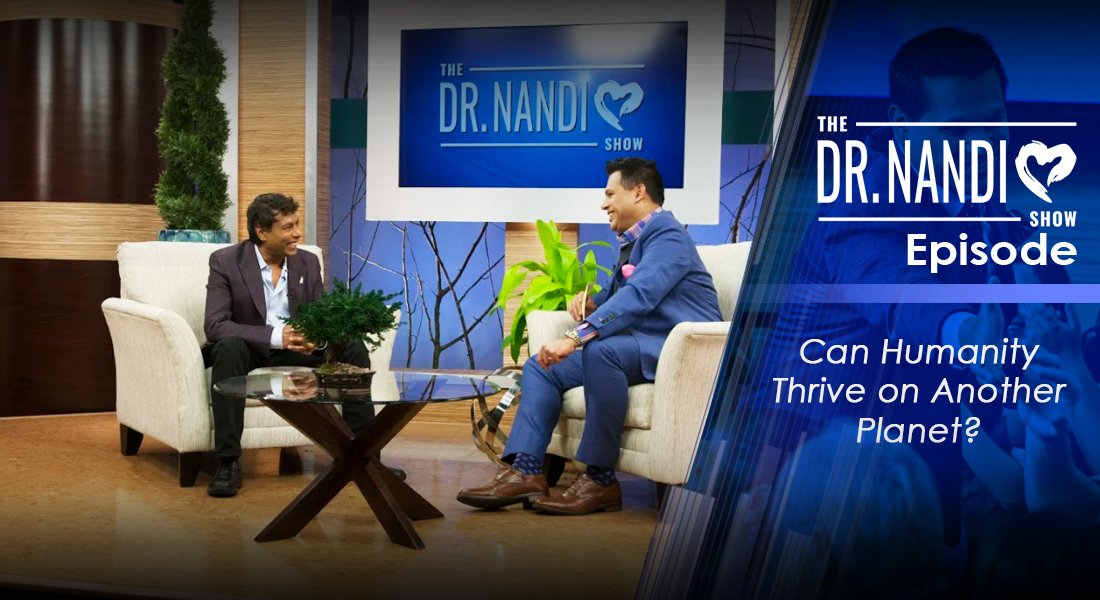
In this episode, my guests and I talk about the future of human health and whether it will take place here on Earth. Does that sound like science fiction? Well, many of our brightest minds are already hard at work trying to make this happen.
Joining me are some of the experts who have devoted their lives to this question. Each approaches the problem in a different way, but all agree on one thing. Right now, we only have one place to live and it’s here on Earth. But there is one man who’s planning to put people on the moon someday soon.
It was 5:55 p.m. Eastern Standard Time on December 14, 1972, when the last human beings to walk on the surface of the Moon actually lifted off and said goodbye. And nobody’s been back to the moon since. My first guest Naveen Jain, however, says that that needs to change. And he wants to be the one to make it happen. Naveen is the founder of Moon Express, a company with an ambitious goal: to redefine what’s possible by returning to the Moon and unlocking its mysteries and resources for the benefit of humanity. Naveen joined the ranks of a pretty elite club. Elon Musk, Richard Branson, Jeff Bezos are focusing on the same goal. However, Naveen clarifies that his company is the only one on the planet to have permission to leave Earth’s orbit and land on any celestial body, including the moon. The others are stuck in the sub-orbital.
If you are wondering why bright people, who could do anything on Earth, are thinking of going to space, then Naveen has the answer for you. He explains that all of us are living on this single spacecraft that we call planet Earth. And imagine if something were to happen to our planet…then we all would become dinosaurs. We as human species may not exist. So we have to find a way to become a multi-planetary society. If we don’t, we could be the next dinosaurs. And the last thing we want as humans, is to be like the dinosaurs.
This doesn’t mean that we shouldn’t protect the Earth. It is not one or the other, but both. Naveen and I have a very interesting conversation about this.
Whenever we talk about living on another planet, it seems like it’s always Mars. There’s something about the red planet that just holds our collective fixation. My second guest, Stephen Petranek believes this isn’t just the stuff of science fiction. He says that there’s a good chance your own children will be soon walking on Mars.
Stephen is a journalist and author of the book, “How We’ll Live on Mars”. He says that while it’s easier to fix our planet, part of the problem is overpopulation. We have seven and a half billion people on the planet now. That’s not a sustainable number of people. And unless we want a bunch of wars to kill off about half of them, or to have them die of a terrible disease, we have to have a place to expand to.
However, saving Earth is a tough subject. We have 195 nations who often don’t agree on things, including how to take care of our planet. Stephen explains that we have been nomadic for about 99% of our existence, with the exception of the last 20,000 years. Humans have always moved from where they were, over the horizon, into the next wilderness. It was a survival mechanism.
Stephen and I have a fascinating conversation about this topic, and you too will learn much about the possibility of going to Mars.
My next guest, Professor Paul Van Susante is a professor of mechanical engineering at Michigan Tech and a former NASA faculty fellow. He’s been involved in major research projects for companies like Lockheed Martin and Caterpillar, amongst others.
Professor Van Susante explains the idea of living on other planets is not new. This has been going on since the space age in the 1960s when we first landed on the Moon. And a lot of people were disappointed that we didn’t stay and didn’t go back sooner. He says a lot of people got tired and said, “You know what? We’re going to do it ourselves.” And that’s we’re seeing now, the generation that was disappointed formed companies, and with all the technology advances, now believe we can actually do it.
This new movement is not about giving up on Earth. Professor Van Susante says that we’re only talking about moving part of the civilization. It’s about small colonies. So Mars One, for instance, wanted to move only a hundred people over there. But one of the challenges is getting there. We need a big rocket. And then once you get there, you, of course, need to be able to survive. So you need a bunch of different things. And forming a colony and living off the land is even more of a difficult challenge. There is a lot to think about and a lot to do.
Professor Van Susante shares a lot of great info about this topic, and I bet you will learn a lot about the possibilities of living outside of Earth.
No products in the cart.
*These statements have not been evaluated by the Food and Drug Administration. This product is not intended to diagnose, treat, cure, or prevent any disease.
